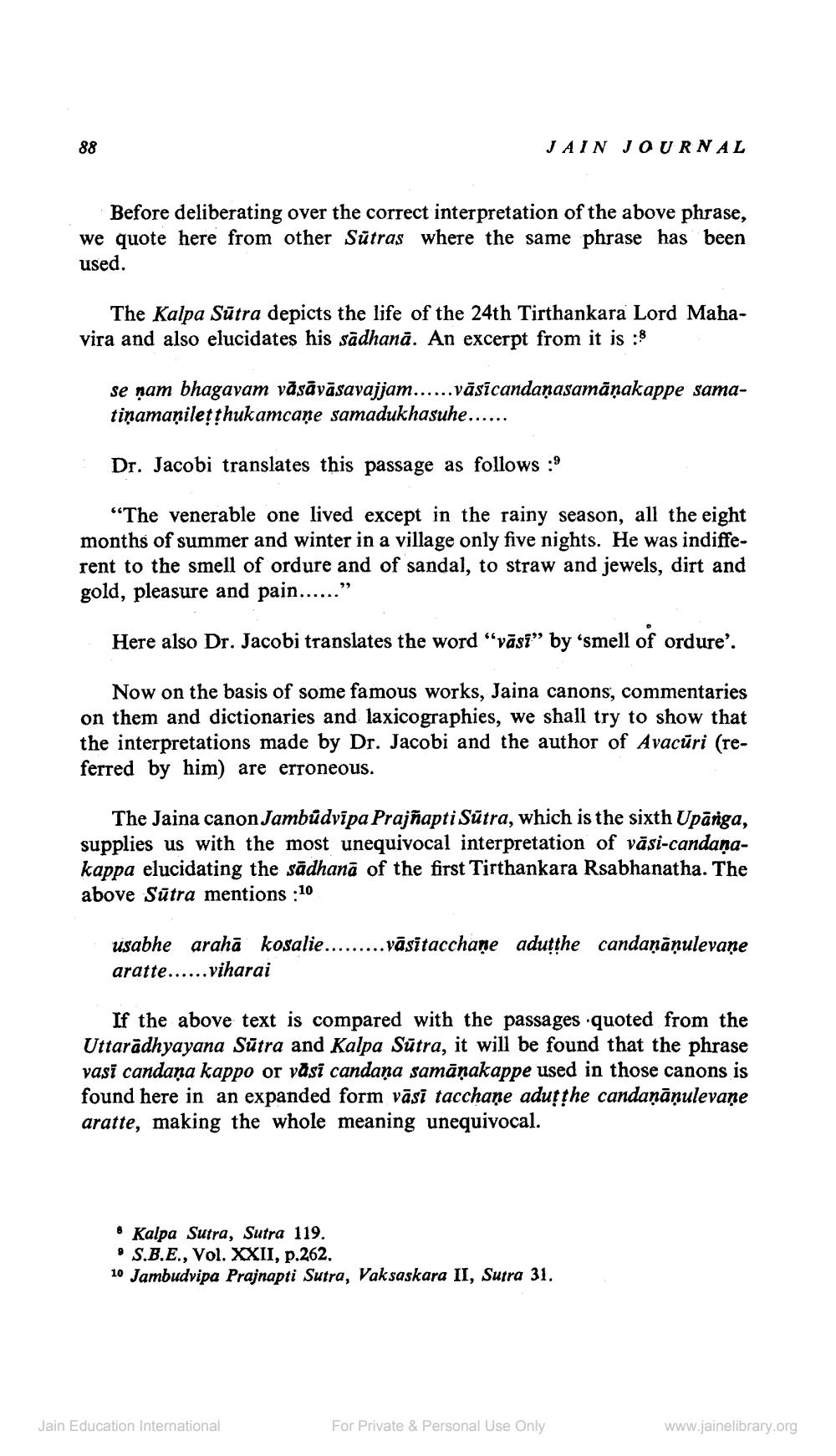________________
88
JAIN JOURNAL
Before deliberating over the correct interpretation of the above phrase, we quote here from other Sūtras where the same phrase has been used.
The Kalpa Sūtra depicts the life of the 24th Tirthankara Lord Mahavira and also elucidates his sadhanā. An excerpt from it is :8
se nam bhagavam vāsāvāsavaijam......vāsicandanasamāņakappe samatinamaniletthukamcane samadukhasuhe......
Dr. Jacobi translates this passage as follows ::
"The venerable one lived except in the rainy season, all the eight months of summer and winter in a village only five nights. He was indifferent to the smell of ordure and of sandal, to straw and jewels, dirt and gold, pleasure and pain......"
Here also Dr. Jacobi translates the word "vāsi" by 'smell of ordure'.
Now on the basis of some famous works, Jaina canons, commentaries on them and dictionaries and laxicographies, we shall try to show that the interpretations made by Dr. Jacobi and the author of Avacūri (referred by him) are erroneous.
The Jaina canon Jambūdvīpa Prajñapti Sūtra, which is the sixth Upanga, supplies us with the most unequivocal interpretation of vāsi-candanakappa elucidating the sādhanā of the first Tirthankara Rsabhanatha. The above Sūtra mentions :10
usabhe arahā kosalie .........vāsitacchane adutthe candaņāņulevaņe aratte...... viharai
If the above text is compared with the passages quoted from the Uttarādhyayana Sūtra and Kalpa Sūtra, it will be found that the phrase vasi candana kappo or väsi candana samāņakappe used in those canons is found here in an expanded form vāsi tacchane adut the candaņānulevane aratte, making the whole meaning unequivocal.
& Kalpa Sutra, Sutra 119. .S.B.E., Vol. XXII, p.262, 10 Jambudvipa Prajnapti Sutra, Vaksaskara II, Sutra 31.
Jain Education International
For Private & Personal Use Only
www.jainelibrary.org




